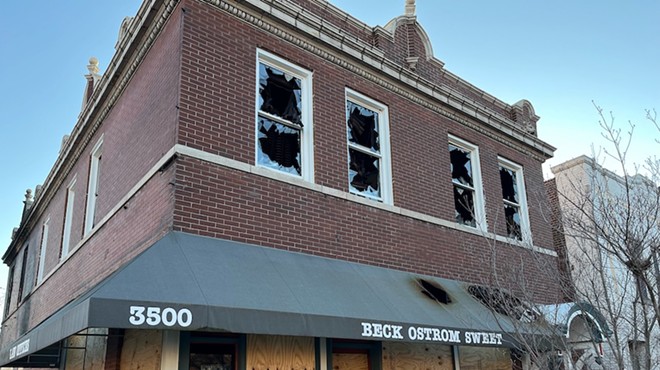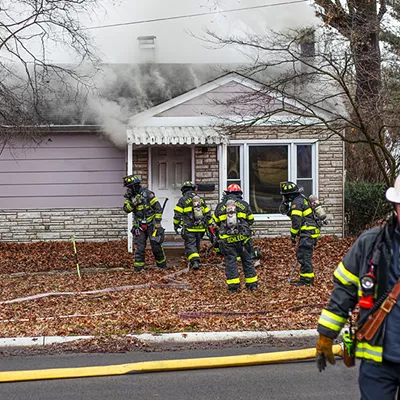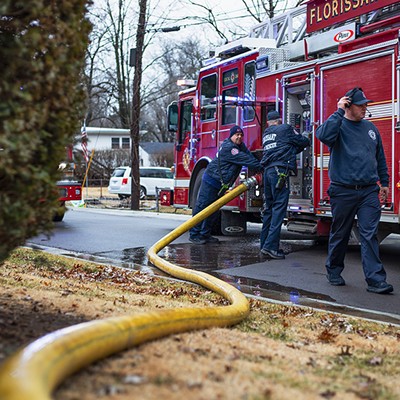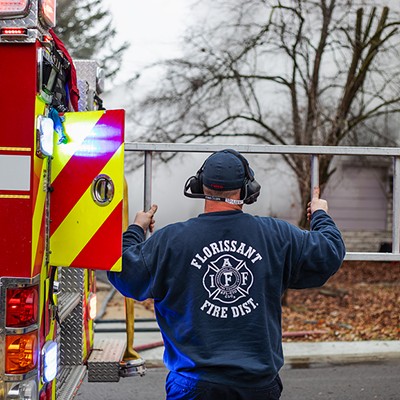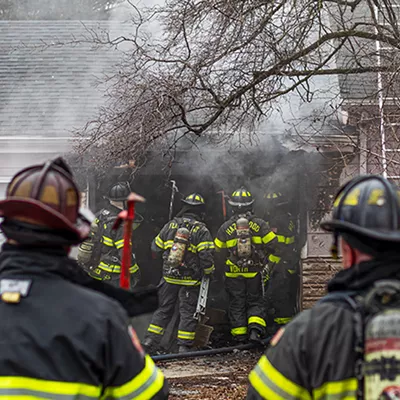For the past several months, the Board of Aldermen has debated changes to the firefighters pension system that would undo 2013 reforms made to reduce spending. The mayor’s office argues the changes would wreak havoc on the city’s finances.
While the mayor ostensibly counts as allies a majority of the Board of Aldermen, including its president, Board Bill 146, sponsored by Ward 4 Alderman Bret Narayan, passed last Friday with 11 aye votes and 3 opposed. That should be a veto-proof majority.
This bill would “permit the Firemen’s Retirement System Board of Trustees to also act as St. Louis Firefighter’s Retirement Board Plan of Trustees,” according to its verbiage. In essence, the people overseeing the original pension plan that city firefighters were placed on before 2012 could also oversee the city’s current pension plan.
Mayor Tishaura Jones has vowed to veto this bill saying it would take away local control of the firefighter pension system and cause costs to skyrocket.
“I am standing firmly against Board Bill 146 as I believe that eliminating the city's control over these costs will have drastic consequences for our budget,” Jones said in a statement following the bill’s passage.
St. Louis’ Local 73 firefighters union is supportive of the push for pension change, and nearly every time the bill was discussed, firefighters sat before the board.
The union argues that combining the administration of both retirement systems makes the process less complicated for firefighters and reduces investment risks. They also claim the change would save the city money.
“There would be additional savings by investing the assets of both systems in the same investment vehicles,” the union said in an online statement to members. “With a combined portfolio of $600million, the reduction in management fees would be significant. And when you factor in this aspect, the savings are closer to a million dollars each and every year for the City.”
Jones argues that the city has saved approximately $10 million per year since switching from the old pension system. These savings provided the city with enough funds to increase firefighter pay by 13 percent.
“Board Bill 146 would likely increase the cost of firefighter pensions to 2013 levels when pensions accounted for more than one third of the budget,” Jones said in her statement.
To put the anticipated additional costs into context, 33 percent of the FY24 Fire Department budget would be $32.8 million—$16 million more than current FY24 fire pension costs, Jones said in a letter to the board ahead of the vote.
That $16 million difference is substantial, considering the annual budget needs for parks ($10.6 million), streets ($9.7 million), traffic and lighting ($11.7 million), and forestry services ($9.2 million), according to Jones.
“To eliminate the reforms and revert back to the old system makes it more than hypothetical that
these pension costs would once again take over the City budget,” Jones said. “The City budget is a reflection of hard choices and trade-offs, and if BB 146 becomes law, the City will be forced to anticipate budget cuts to its non-fire pension programs.”
Jones also points out that the bill would take local control of the pensions out of the hands of the city and place it into those of the state legislature.
She cited this part of the bill in her argument:
“Nothing in the Plan shall allow for an amendment to Chapter 4.18 – Firemen’s Retirement
System to be effective without a prior amendment to Chapter 87 of the Revised Statutes of the State of Missouri containing the same language.”
“The City would further be limited in what we are allowed to change about our locally-funded fire pensions by what the state tells us to do–with OUR taxpayers footing the bill,” Jones said.
Jones vetoed a similar plan last year, saying the change would lead to increased costs for taxpayers, according to the St. Louis Post-Dispatch.
The bill is one of two firefighter pension bills that has gone before the board in recent months.
The other, Board Bill 144, would allow firefighters who have completed 30 years of service before the age of 55 to retire without seeing their benefits reduced.
“We saw that FRS [the old system] had much higher returns on investments for the people in that system,” Narayan said at the bill’s perfection hearing on Feb. 9. “The firefighters have been very outspoken about their desire to have the decisions made by FRS rather than FRP [the new system]. FRP had one of the worst years in history. They took almost a 20 percent beating a couple years back.”
Narayan called claims that the bill would bankrupt the city false and said it was based on a “slippery slope” argument.
The bill received some pushback from the board, including Ward 3 Alderman Shane Cohn.
“It’s really flawed logic to move backwards when we are trying to move our city forward,” Cohn said during the board meeting. “We are trying to be responsible stewards of our city’s financial resources here, and I would ask that folks oppose Board Bill 146.”
With more than two-thirds of the board voting to support the bill, Jones is bracing for aldermen to override her veto.
“If my veto is overridden, we will be forced to make cuts in the city’s budget to prepare to accommodate pension costs that the city’s past experience suggests could be as large as $16 million,” Jones said in her statement.
The bill has been delivered to the mayor and is in a 10-day mandatory waiting period awaiting her signature or her veto. After the waiting period she has an additional 10 days to veto the bill, and if she does, it would return to the board for a vote as a “reconsidered bill” where it must achieve votes from two-thirds of the Board of Alderman to override the veto.
The Board of Alderman would have 90 days to reconsider the bill.
When asked if the mayor is speaking with individual aldermen about the bill, spokesperson for the mayor Conner Kerrigan told RFT:
“We are working hard to see that the veto that we will issue is sustained.”
Subscribe to Riverfront Times newsletters.
Follow us: Apple News | Google News | NewsBreak | Reddit | Instagram | Facebook | Twitter | Or sign up for our RSS Feed


